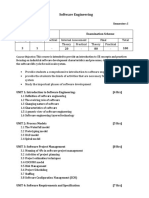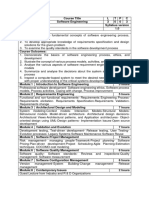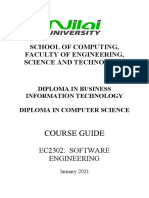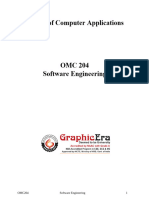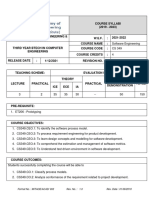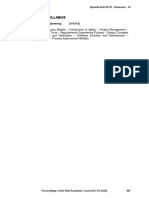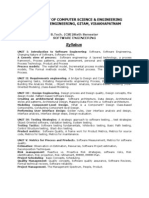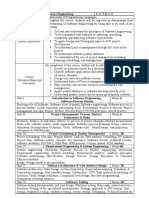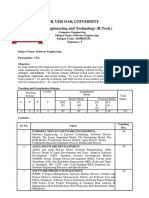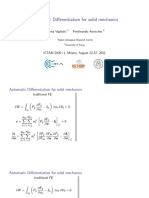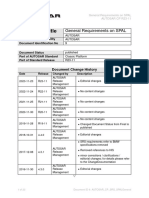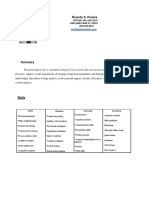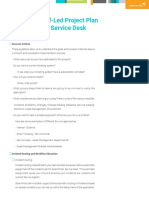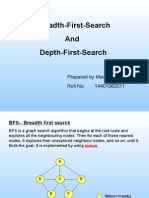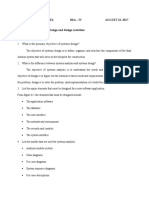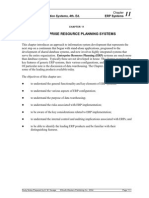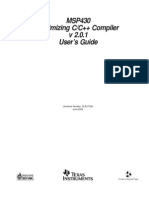0% found this document useful (0 votes)
65 views2 pagesSoftware Engineering
This document outlines a software engineering course that aims to teach students how to successfully work as software professionals and engineers. The 45-hour course is divided into 5 units covering topics like software requirements, analysis and design concepts, testing, and project management. At the end of the course, students will be able to apply software engineering lifecycle models, work on multidisciplinary teams to develop quality software, and demonstrate an understanding of current software engineering theories and techniques. The course will use two primary textbooks and three reference books.
Uploaded by
phd22305003 AnamikaCopyright
© © All Rights Reserved
We take content rights seriously. If you suspect this is your content, claim it here.
Available Formats
Download as DOCX, PDF, TXT or read online on Scribd
0% found this document useful (0 votes)
65 views2 pagesSoftware Engineering
This document outlines a software engineering course that aims to teach students how to successfully work as software professionals and engineers. The 45-hour course is divided into 5 units covering topics like software requirements, analysis and design concepts, testing, and project management. At the end of the course, students will be able to apply software engineering lifecycle models, work on multidisciplinary teams to develop quality software, and demonstrate an understanding of current software engineering theories and techniques. The course will use two primary textbooks and three reference books.
Uploaded by
phd22305003 AnamikaCopyright
© © All Rights Reserved
We take content rights seriously. If you suspect this is your content, claim it here.
Available Formats
Download as DOCX, PDF, TXT or read online on Scribd
/ 2




